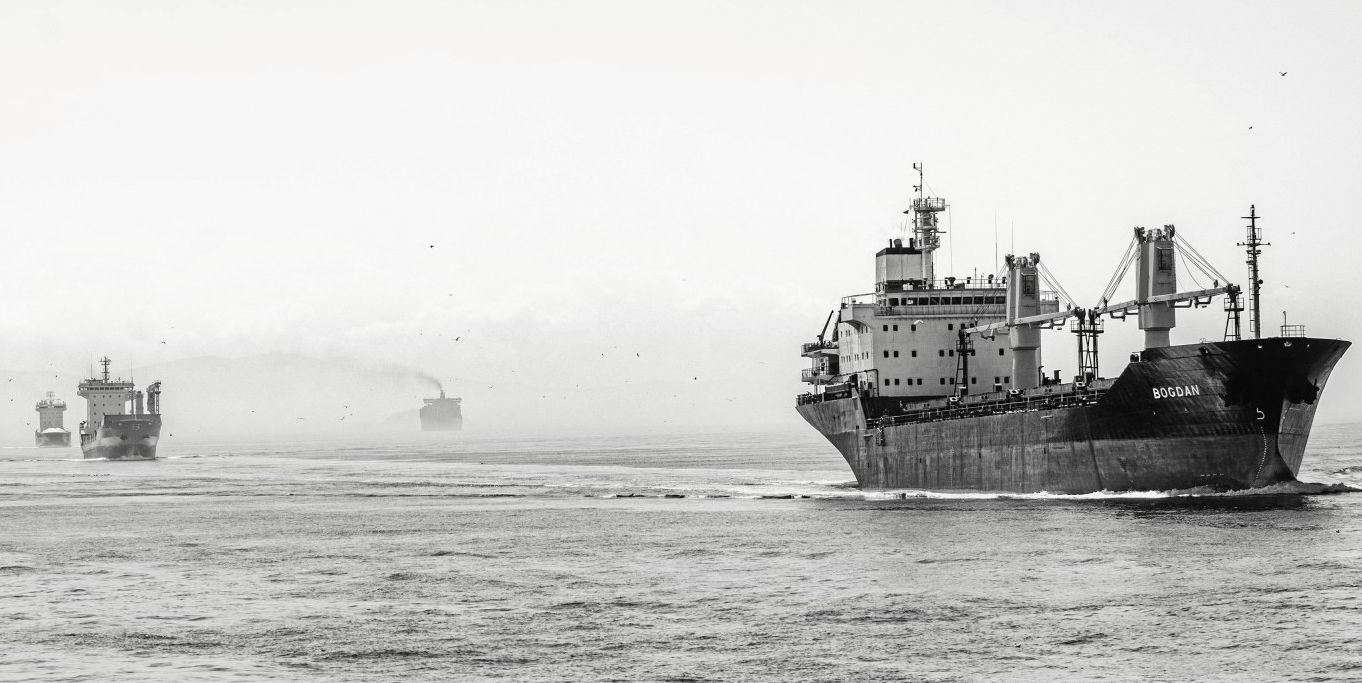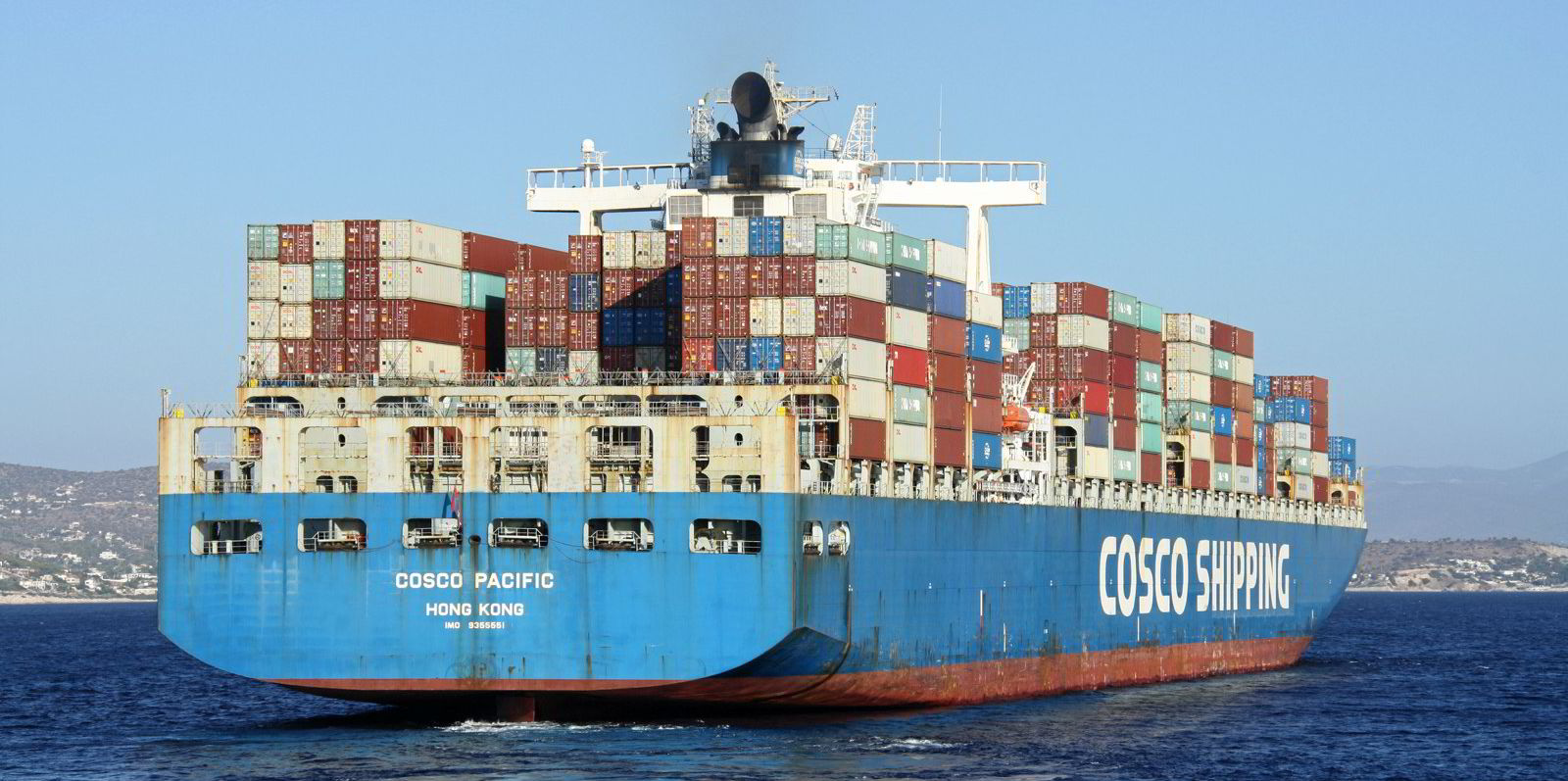Investors should call on shipping and its customers to slash operational carbon emissions, the Environmental Defense Fund and Maersk Mc-Kinney Moller Center for Zero Carbon Shipping contend in a joint report.
The conclusions of the report, which lays out a series of asks that shareholders should make of maritime transportation providers and users, also urge the industry to go further on carbon emissions disclosures than international accounting standards require.
The call by the environmental group EDF and the Copenhagen-based Moller Center come as larger corporates are facing increasing pressure from shareholders to decarbonise — a trend that has yet to find its way into shipping, at least in a significant public way.

“The urgency of the transition requires that investors push the industry to take ambitious action now, in order to reduce operational emissions and accelerate the adoption curve for low-carbon fuels by the end of this decade,” the two non-profit groups said in the report.
“By taking steps to test and de-risk new fuel pathways, the industry can reduce long-term costs and manage the risk of price or fuel supply shocks in the future.”
EDF and the Moller Center said investors can play an important role in calling for a more accelerated pace of shipping’s transition from fuel oil to zero-carbon fuels like green ammonia or green methanol, as the International Maritime Organization discusses hiking its greenhouse gas ambitions.
And investors have an important role to play in calling for shipping companies and companies that use maritime transportation to set ambitious decarbonisation targets of their own.
Andrew Howell, EDF’s New York-based director of investor influence, told TradeWinds that shipping faces challenges in charting a path to reduce its greenhouse gas footprint.
No time to wait
“The key is we don’t have enough time just to wait until we have a perfect solution,” he said. “Action needs to be taken much sooner than that in order to stay on the path for a reasonable climate outcome.”
EDF and the Moller Center laid out five key commitments that investors should seek from maritime shipping providers, including setting a zero-carbon target by 2050 or sooner and laying out interim targets toward meeting that goal.
The EDF and Maersk Mc-Kinney Moller Center for Zero Carbon Shipping laid out five commitments that investors should seek from shipping companies:
- Shipping companies should set a target to eliminate emissions of CO2 and other greenhouse gases across the maritime fuel lifecycle by 2050 or even sooner.
- They should also adopt interim targets on the path to that final goal, including immediate carbon intensity cuts rather than pushing out major reductions until later years. That includes targeting an A or B rating on the IMO’s Carbon Intensity indicator by 2025, a long-term and transitional fuel strategy, a vessel order and retrofit programme and energy efficiency measures.
- Shipping companies should disclose emissions per tonne or teu cargo carried, per distance travelled.
- They should support green ports and corridors.
- And they should advocate for clean shipping policies not just at the IMO, but also at regional, national and local levels.
“The most important is, make a commitment that this is an important priority, a strategic priority, for the company to address your environmental footprint and that the goal is to reach a net-zero state by a certain date, usually that’s by 2050,” Howell said.
In shipping, many listed companies have small capitalisations that do not attract large institutional investors that have been driving shareholder action on carbon.
But Howell said that in similarly fragmented industries, the larger companies can forge a path for the industry.
“As time goes on, that will make it easier, so the actions those bigger companies take make it easier for the small ones to follow eventually, and that’s because you will see the economic case, hopefully, will be proven,” he said.
The organisations also urge investors to seek commitments from users of maritime shipping.

Among those asks, freight buyers should prioritise climate performance in their shipping performance. They should also place cargoes on the cleanest, most fuel-efficient vessels possible, and shipping users should signal a willingness to pay more for cleaner transport.
EDF and the Moller Center also want shipping to disclose metrics on carbon emissions that go beyond the requirements of the Sustainable Accounting Standards Board or the draft guidelines of the upcoming International Sustainability Standards Board.
Shipping companies should disclose indirect Scope 2 and Scope 3 emissions, in addition to their direct Scope 1 pollution.
They should also report carbon intensity in grams of CO2 per deadweight ton per nautical mile, or something similar, Energy Efficiency Design Index data for new ships, and information on climate strategy and transition progress, according to the report.
Howell said shipping companies are already providing data to the IMO, and making that data publicly available could be part of the solution. He said companies will know what additional data is meaningful and accurate.
“We call on all companies … to step up and start to providing that data voluntarily,” he said.




